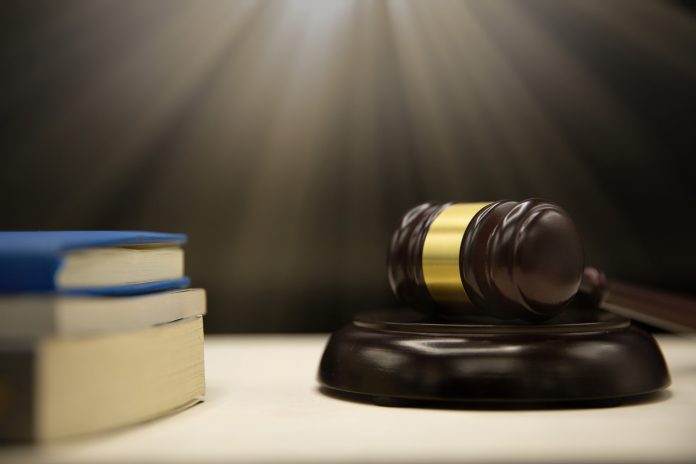Living in a society requires adhering to certain laws and guidelines that have been approved by individuals in positions of power to control conduct. Such laws are in place to urge everyone to carry out their legal responsibilities and treat others with respect. Personal injury law is the term used to describe any such law. Anyone who feels impacted by such events is welcome to seek specialist advice from personal injury lawyer in Murrieta, CA for complete clarification. In this context, we have covered a few of the foundations below.
Table of Contents
What are Personal Injuries and what Laws Apply to them?
These injuries are the result of someone else’s carelessness or unintentional circumstances. Nobody should be harmed as a result of another person’s acts, according to the law. Therefore, laws that held the perpetrator accountable and provided the victim with the maximum amount of compensation had to be put into place. In accordance with this personal injury legislation, the injured party may seek the assistance of qualified attorney while submitting their claim.
The plaintiff typically seeks damages or recompense for the loss or harm the opposing party has caused him. As determined fair by a reputable court of law, such compensations or damages are frequently awarded in the form of financial compensation.
What Major Kinds of Personal Injury Legislation are there?
Sometimes attorneys handle each one independently, while other times they like to group some of their cases together to prevent duplication of effort. The following, more general approach will give you an understanding of the examples coming under this heading.
Workplace: These injuries relate to any accidents that occur to employees or workers while they are at work. Examples include working without safety equipment, working long hours without rest, operating dangerous machinery, working at heights, etc. Utilize knowledgeable attorney’s assistance to handle workmen’s compensation claims swiftly.
Medical Malpractice: One may have heard of the term medical malpractice or medical negligence. This refers to any instances in which a patient’s health is adversely impacted by the actions of a doctor, nurse, chemist, lab assistant, or member of another medical staff. The topics treated here include surgical blunders, delayed diagnoses, pregnant neglect, incorrect prescriptions, etc.
Vehicles: These are frequently used when someone’s reckless or careless driving results in injury to other road users. All vehicles, including hit-and-runs, trucks, motorcycles, buses, and cars, come into this group.
Product: In this case, manufacturers or retailers that sold faulty products are held accountable. When purchasing any product, whether it be technological, electrical, medicinal, or of another kind, a buyer expects a certain level of safety. Therefore, it is the responsibility of the maker and the sale; any breach or neglect is prohibited.
Personal: Personal injury includes a wide range of situations, such as dog bites, burn injuries, sexual assault, etc. These cases also include slip-and-fall situations.
What does an Attorney for Personal Injuries do?
You might be considering hiring a personal injury lawyer if you were hurt in an accident. In fact, it’s possible that someone has already advised you to do this. What does a personal injury attorney do, though? How can they help you? How might someone assist you in getting compensation for the harms and losses you have endured? Will you have to work with a legal team? Let’s check it out.
Read Also: Crimes that are Considered as Criminal Offense in California
Principal Functions of a Personal Injury Attorney
A personal injury lawyer, in the most basic sense, is a sort of attorney that offers legal services to clients who assert that they have suffered physical or psychological harm due to the negligence (carelessness) or misconduct of another person, business, government agency, or other institution. A personal injury attorney’s job is to advocate on behalf of their wounded client to obtain monetary compensation for their losses and damages.
The exact amount will depend on a number of variables, including the seriousness of the injuries sustained, how long it takes for someone to recover from their injuries (or if they ever fully recover), whether there are any long-term disabilities or disfigurements, whether there was any loss of income (directly or indirectly), and whether there were any non-economic damages suffered (such as emotional distress). Having an experienced personal injury lawyer on your side in court will greatly reduce your worries.
The Reasons Behind Hiring a Personal Injury Attorney
Trials in personal injury cases are uncommon. You’ll probably accept a reasonable settlement offer from the opposing party’s insurance provider and walk away with cash. But you should hire a lawyer if the offer is too low or nonexistent. An excellent lawyer will be able to advise you on whether to file a lawsuit, how much to demand, and whether going to court is required.
After you choose a lawyer, the most crucial thing they will do is look into your case. Examining physical evidence from the accident scene as well as conducting witness interviews and reviewing police reports are all part of this process. To determine who was at fault and to present that information in a way that establishes the other party’s negligence or recklessness, it is critical for an attorney to thoroughly investigate the circumstances of the case.
Final Words
A lawyer can also assist you in determining all of the parties who might be held accountable for your damages and injuries. It is advisable to have an attorney handle it when there are multiple parties at fault because it can be difficult to determine how much money each one of them should be compensated for.

















